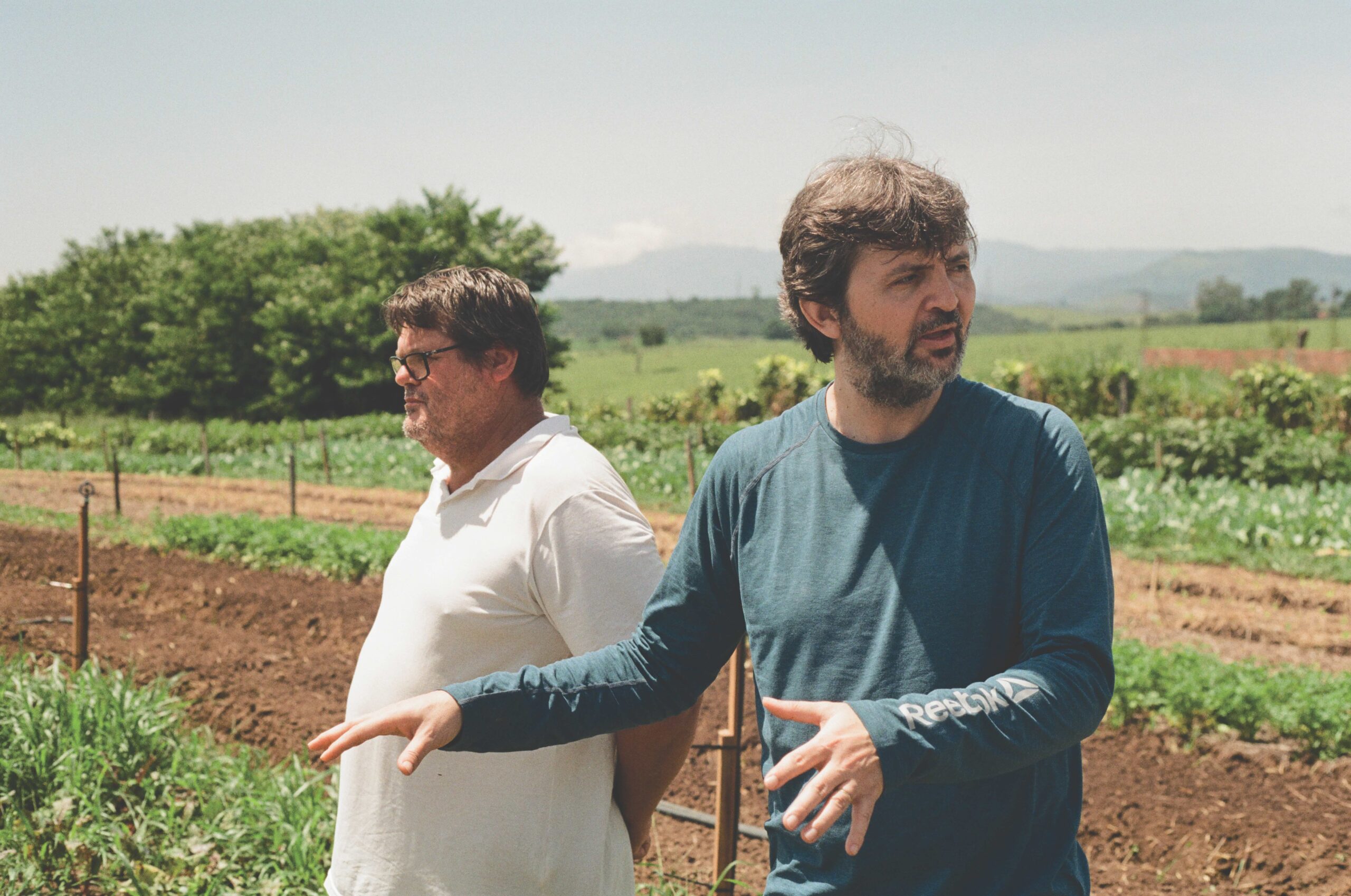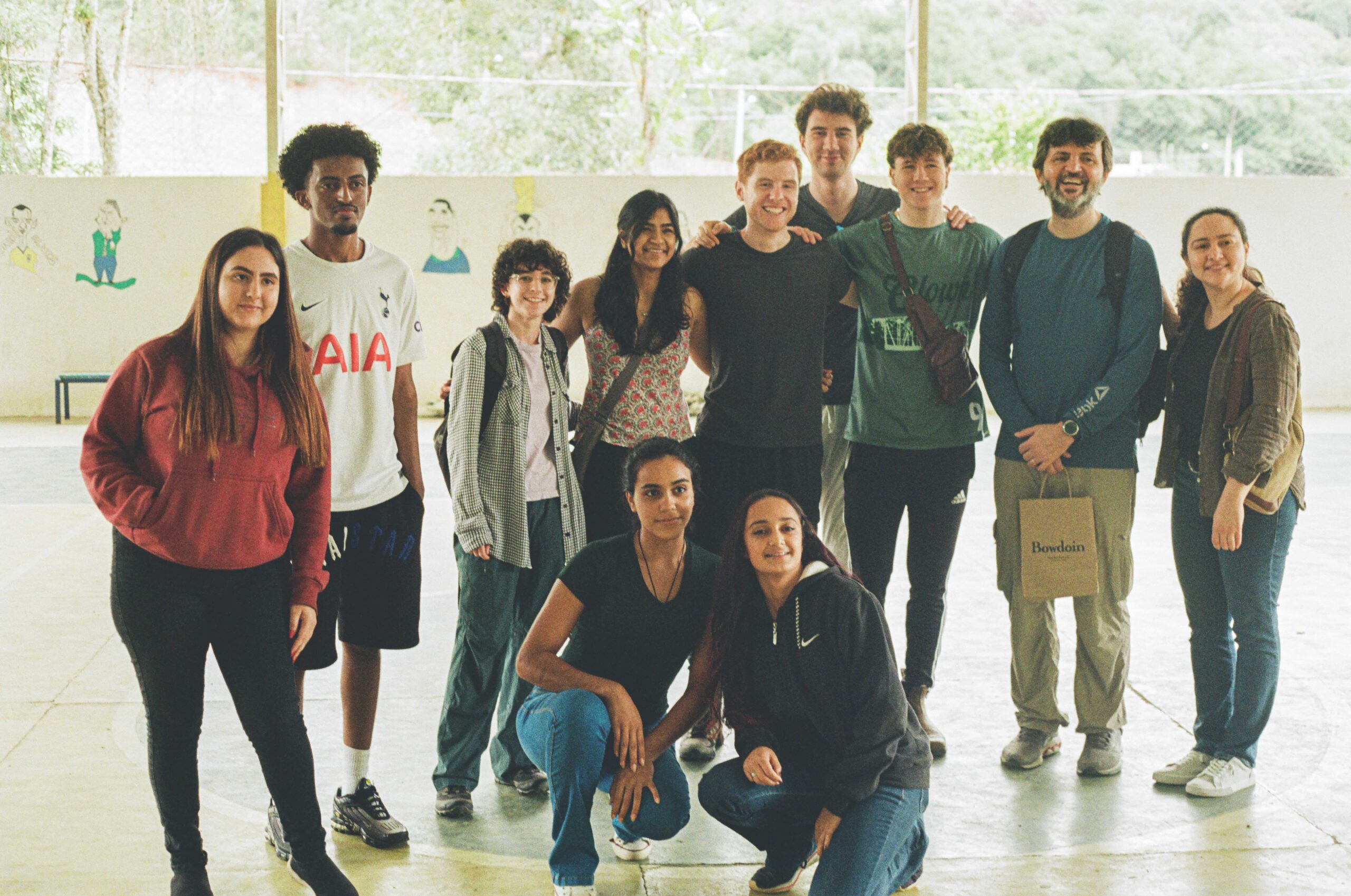From Damariscotta to Brazil: Students travel near and far on College-sponsored Spring Break adventures
March 29, 2024
 Courtesy of Mason Daugherty
Courtesy of Mason DaughertyThis Spring Break, Bowdoin students continued long-standing Bowdoin traditions such as the Alternative Spring Break (ASB) trips and also started new ones, such as the Wellness Trip and the Digital and Computational studies (DCS) trip to Brazil.
Bowdoin’s Counseling and Wellness Services collaborated with the Center for Religious and Spiritual Life to facilitate a three-day wellness retreat in Damariscotta, Maine. Students participating in this retreat engaged in a range of wellness practices, from yoga to meditation to campfire conversations. Kate Nicholson, the assistant director of student wellness programs and the coordinator of wellness outreach, described spring break as the optimal time to prioritize mental health.
“I often find it limiting, to a degree, to [only provide] opportunities for deeper reflection and practice during the busyness of a semester,” Nicholson said. “A lot of wellness ends up looking like strategies to survive and manage stress, to try to stay healthy and keep up. That isn’t bad, but it’s certainly not entirely satisfying for people.”
Nicholson emphasized the importance of student initiatives in facilitating spring break trips to provide students wellness opportunities during a gap in the semester when students have more free-time. Though the wellness retreat was facilitated by offices within the Division of Student Affairs, student suggestions shaped the program. Aurélie Nishimwe ’26 was hired by the two offices to be a student coordinator for the trip.
“One of my favorite things that I increasingly appreciate about Bowdoin is that when there is an interest in anything, there is almost always a way to make it come into being,” Nicholson said. “Spring break is one of those primed moments in your college experience each year, where if students have an idea, or a desire to have an experience or pursue an interest, there is often a way for collaboration and campus support to make it happen.”
Similarly, the ASB trips are student-led and proposed. However, trips to New York City, Chicago and Immokalee, Fla. focused on learning and community outreach rather than relaxation and rejuvenation.
Mackenzie Cooper ’26 participated in the ASB trip to Immokalee. The Immokalee group learned about issues facing the local community—consisting primarily of both migrant and immigrant farm workers—through educational sessions and volunteering.
“The focus was learning about the issues that people are facing in this community, which is largely a migrant farm worker community, and doing that through volunteer activities,” Cooper said. “We spent a lot of time at the Guadalupe Center, which is an early education center that has a lot of different branches down in Immokalee.”
They spent time learning about the importance of the Center and how students could support its goals and ideas for facing inequities pressing their community.
“[The Guadalupe Center] helps with daycare for parents who otherwise have no time to go put their kids somewhere when they’re off working for really, really long hours in the fields. We talked to a lot of people there about how that generates jobs and about the issues that kids face with having access to educational resources,” Cooper said.
Though the trip was centered in Immokalee, students were also able to take an educational trip to Palm Beach where they talked to community organizers and participated in events promoting labor rights.
“We went to Palm Beach on our first day because the Coalition of Immokalee Workers—a really well recognized organization that fights for migrant labor rights [in Florida] and across the country—was having protests that they have every year called the Farmworker Freedom Festival,” Cooper said.
Cooper added that ASB trips provide a unique opportunity to student leaders to organize programs based on their interests while receiving lots of support from the McKeen Center.
“We had two seniors who are leading our trip—Jared Lynch ’24 and Ereny Marcos ’24—who were really awesome. We also had a staff advisor this year from the McKeen center. Ours was Danny Antonio Miro-Chinea, the assistant director of the McKeen Center,” Cooper said. “[He provided] another perspective and other insight, which was nice.”
Gwen Abbott ’26 led the ASB trip to Chicago, which concentrated on women’s healthcare through the lenses of law, policy and medical systems. The Chicago ASB trip partnered with the ACLU to examine abortion rights and visited hospitals to consider the medical side of abortion healthcare. They also spent a day sightseeing, watching plays and walking around spaces like the Lincoln Park Zoo and Chicago’s Chinatown.
Participants learned about and practiced abortion medical procedures using a papaya as a model, a unique experience that students noted would stick with them in the future.
“My personal favorite [activity] was when we did the papaya workshop, because I’m pre-med,” Abbott said. “Learning how to do an abortion is actually way more difficult than it seems. When you go through med school, you don’t [typically] have classes on it. You have to actively seek that out yourself. So to experience something that some doctors don’t even know how to do was really cool.”
Another group of Bowdoin students went even further afield—to South America. The DCS department, in association with the “Technology and the Common Good Class” taught by Assistant Professor of Digital and Computational Studies Fernando Nascimiento, went on a trip to learn about the effects of technology on various places in Brazil.
“Every day we were visiting different places. We went to the University of São Paulo. And we visited a village which just got internet capabilities two years ago and visited a farmer to learn more about how to potentially think about technology in farming and organic farms,” Kavya Doraswamy ’24 said. “Every day was a different experience to learn more about the culture, the place and how technological interventions might change.”
Doraswamy expressed appreciation for the opportunity to learn outside of the classroom with classmates who came with varying interests and experiences and to gain new perspectives on technological issues.
“I think that contextual learning is super important. You can totally do readings and do some research on social technological capabilities in Brazil…. In order to get the whole picture, you actually have to be in the space,” Doraswamy said. “You can be learning even when it doesn’t feel like learning. You’re getting so much from conversations and just being present with each other.”
This year’s spring break trips aimed to inspire students in the future to take their passions and a group of their peers to a new destination in Maine or even across the world.
 Courtesy of Mason Daugherty
Courtesy of Mason Daugherty
Comments
Before submitting a comment, please review our comment policy. Some key points from the policy: